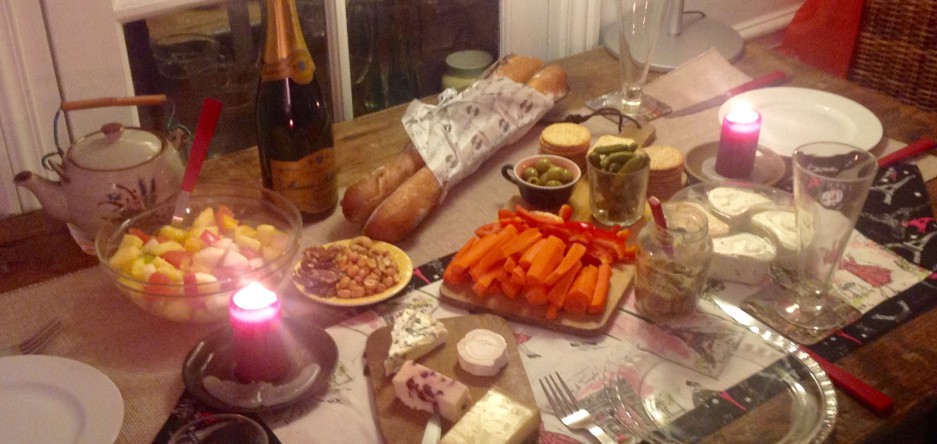By rethinking the order of a day, the supper hour has come to symbolize an exceedingly meaningful threshold to me. Watching darkness advance through the kitchen window, making a simple meal and joining with loved ones, guests, or church family around the table has come to embody the real gift of greeting the new day ahead. Not only that, but my attitude does a miraculous about-face: preparing or sharing such a meal is anything but a chore. It is filled with an energizing, urgent expectancy for God’s presence and grace. In short, it is a delight to anticipate a night of walking together with God in the cool of the evening as we share a simple meal that is both the final act of this day and an unfolding prelude to tomorrow.
It is a subtle shift in thinking and attitude and practice. Our evening meal continues to nourish us as we lie down to sleep, so that we may arise refreshed and ready because the food and practices of the night before are used by our body and soul, physically and spiritually, to heal, grow, strengthen, and prepare us for the rigors of tomorrow. So what we practice at night is foundational for how we greet tomorrow. The evening meal opens a new day, and initiates us into all the promises the evening hours, as new day, hold.
Think of the possibilities if you turn each night, in your mind and in your practice into a new day. When you do, the shared meal takes on new significance, as do the hours between 7:00 and 11:00 p.m., so often wasted away in front of a television or computer because of our perceived need to wind down. I believe that viewing each evening as God-given time for entering a new day can change our perspective on the practices of prayer, fellowship, meals, and study. Suddenly, being still becomes both a possible and desirable practice-for every member of the family. You may be frustrated at this point at what seems my naïveté- I can’t possibly understand the crazy mixed-up world that your family experiences from the after-school bell until bedtime. I do understand though, and I am telling you that your life and that of your family need not be that frenzied. Later posts will address some of the ways our modern culture interferes with any intention to have a shared evening meal with a walk-with-God kind of evening, and how we can actively address how we’ve allowed the world’s intrusions to compromise our peace, rest, fellowship, and restoration.
This Will Take Much Practice
So, coming to the table for both common and sacred meals is more important than we recognize as the way to create space in our lives for God and each other. In a way, time at the table cultivates a particular way of life. It is a practice for all ages and for the ages.
Cultivation is a gardening term. So, in one way, we can think of the table as garden, to be tended much like Adam and Eve were called to do in Eden, with care and devotion and joy. If shared meals at home and church were a tended garden, what would you want to cultivate there? What would you plant, nurture, and grow there to nourish and sustain your faith life and that of your family? Remember, Jesus asks, “What do you want?”
~Julie A.P. Walton, Ph.D.

